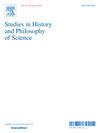抵制知识剥削:从制度救济到社区研究
IF 1.8
2区 哲学
Q1 HISTORY & PHILOSOPHY OF SCIENCE
引用次数: 0
摘要
本研究考察了社会科学和其他有人类参与者的研究背景下的认知剥削。尽管研究人员的意图是好的,但试图吸引边缘化社会群体的成员可能会涉及知识剥削的因素。当享有特权的人强迫被边缘化的人对他们所面临的压迫的本质进行教育时,就会发生认知剥削。认知剥削不仅对被剥削者有害,而且对依靠人们自愿参与的研究也有害。它增加了潜在研究参与者系统性地拒绝参与研究邀请的风险。为了说明这一点,我讨论了研究中的研究疲劳现象Sámi,居住在北欧的土著人。虽然研究疲劳可以解释为对知识利用的抵制,但它也有不利的一面。它使人们无法享受研究带来的好处,而这些好处可以在许多方面改善他们的生活。我讨论了对知识剥削的四种制度性补救措施:提高认识,为教育分配资源,奖励知识多样性工作,以及要求伦理审查。承认制度干预的局限性,我认为以社区为基础的研究是对抗知识剥削的一个有希望的途径。本文章由计算机程序翻译,如有差异,请以英文原文为准。
Resisting epistemic exploitation: From institutional remedies to community-based research
This study examines epistemic exploitation in the context of social scientific and other research with human participants. Despite researchers' good intentions, attempts to engage members of marginalized social groups can involve elements of epistemic exploitation. Epistemic exploitation occurs when privileged persons compel marginalized persons to produce an education about the nature of the oppression they face. Epistemic exploitation is harmful not only to those who are exploited but also to research that depends on people's voluntary participation. It increases the risk that potential research participants systematically decline invitations to participate in research. To illustrate this, I discuss the phenomenon of research fatigue in studies of the Sámi, Indigenous people living in Northern Europe. While research fatigue can be interpreted as resistance to epistemic exploitation, it has a downside. It prevents people from enjoying the benefits of research that could improve their lives in many ways. I discuss four types of institutional remedies to epistemic exploitation: raising awareness, allocating resources for education, rewarding epistemic diversity work, and requiring ethical review. Acknowledging the limitations of institutional interventions, I argue that community-based research is a promising avenue for counteracting epistemic exploitation.
求助全文
通过发布文献求助,成功后即可免费获取论文全文。
去求助
来源期刊

Studies in History and Philosophy of Science
管理科学-科学史与科学哲学
CiteScore
2.50
自引率
10.00%
发文量
166
审稿时长
6.6 weeks
期刊介绍:
Studies in History and Philosophy of Science is devoted to the integrated study of the history, philosophy and sociology of the sciences. The editors encourage contributions both in the long-established areas of the history of the sciences and the philosophy of the sciences and in the topical areas of historiography of the sciences, the sciences in relation to gender, culture and society and the sciences in relation to arts. The Journal is international in scope and content and publishes papers from a wide range of countries and cultural traditions.
 求助内容:
求助内容: 应助结果提醒方式:
应助结果提醒方式:


